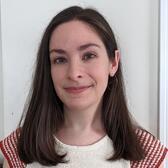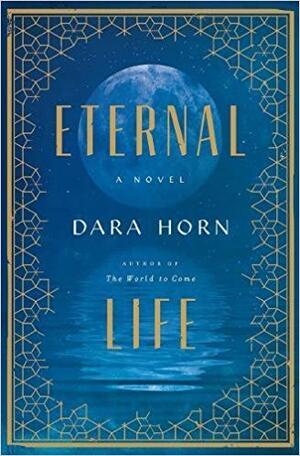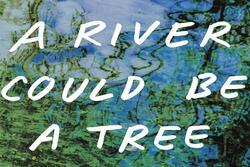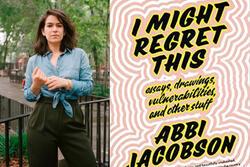An Interview with Dara Horn about "Eternal Life"
JWA sat down with award-winning author Dara Horn to discuss her latest novel, Eternal Life, one of our 2018-2019 Book List picks. Eternal Life tells the story of Rachel, a woman who cannot die. Following the character from the biblical era to the present, the novel humorously and poignantly examines what it means to live, love, and parent for centuries.
What was your inspiration for this story? In your acknowledgments you discuss drawing from Talmudic sources on the sage Yochanan ben Zakkai, who appears in this novel. Why did you choose to focus on his fictionalized mother in Eternal Life?
When I was a young teenager I had a job as a Torah reader in a junior congregation nearly every week (I still chant Torah fairly often), and so the texts of the Torah are something intimately woven into my train of thought. I was in the shower one morning and was thinking of the phrase eleh toldot, which is usually translated as “these are the generations of____,” and is usually followed by a genealogy of So-and-So begat So-and-So begat So-and-So. It occurred to me that these people in the genealogies were always men. I’ve done some begatting in my life and it has never seemed like a very masculine thing, and the phrase popped into my head—“Eleh toldot Rachel”—these are the generations of Rachel, which suddenly changed the whole idea of how I thought about the past and the future.
Yes, this main character is the mother of Yochanan ben Zakkai, a real person who in the Talmud is considered largely responsible for the survival of Judaism after the Romans’ destruction of the Temple in the year 70. I think when we read or study any kind of history, we are usually only reading half the story, because the characters with starring roles in the official version of our collective past are pretty much always men. This version of history suggests that Great Men pop up out of nowhere to save our civilization and we are all supposed to honor their achievements. But anyone who has done the daily physical and mental work of raising a child (today this would include many men, but historically it has meant almost exclusively women) knows how much every human being relies on others, how there is no such thing as a “great man” when no form of greatness is possible without the support of others. Eternal Life is about a person who is always the “supporter.”
There is an abundance of stories about immortality: wanting it, getting it, suffering because of it. But, few of these stories focus on immortal women, and even fewer on fertile immortal women. How did you go about charting this new territory?
The quest to defeat death is one of literature’s oldest stories, and in a sense it’s the purpose of literature. Stories are always in some way about defeating death, about transcending supposedly immutable limitations. You are correct that almost none of these stories of immortal characters are about fertile women. This isn’t the 2,000 Year Old Man, but rather then 2,000 Year Old Mom—and the 2000 Year Old Mom has a lot more life experience. Thinking about how immortality would impact a fertile female character really changed how the quest for eternal life unfolds. The desire for immortality usually comes from a desire to fulfill one’s ambitions, but women’s lives have traditionally been focused not on ambition, but on obligation. So while immortality might be attractive to a man who sees it as a way to fulfill endless ambitions, an immortal woman in most historical periods would more likely be thinking, “Seriously? I have to do all that AGAIN?” My main character goes through it all again and again.
This may seem strange for a story with a supernatural premise, but Eternal Life is my most autobiographical book. I don’t have four hundred children, but I do have four, which can feel very similar. Friends of mine with smaller families would often get nostalgic with each childhood milestone, but I just kept resetting the clock. I’m going to be the Tooth Fairy until my own teeth fall out. So writing this character felt very natural to me.
How did your own experiences of motherhood and womanhood impact the writing and direction of Eternal Life?
I think one of the things you learn when you have a larger family is just how little impact you have on who your children are. People with smaller families observe that their child loves reading and then pat themselves on the back for reading to him or her every night, but when you have a larger family, you see that you read exactly the same amount and even the very same books to each child, and one becomes an amazing reader, and another isn’t interested, and a third learns really late but then dives in, and a fourth needs extra help or… Basically you realize that people who think they are shaping their children are simply dealing with a small sample size. So in this novel, I have a main character whose children act as a very large sample size. Her experience of motherhood is of an acute awareness of her own limitations.
Her romantic experiences are also informed by a large sample size, where she learns what to appreciate and what not to appreciate—but her romantic life is almost entirely shaped by the only other immortal character, her first lover, who has pursued her for centuries. Whether you think this is an epic tale of true love or an epic tale of stalking really depends on your point of view. This wasn’t influenced by my own romantic life but rather by my understanding of romantic relationships in literature, where men endlessly pursuing women is regarded as idealistic and romantic, whereas women endlessly pursuing men is regarded as pathetic.
Eternal Life is not only about immortality and motherhood, but also about an unhealthy relationship. The first word Elazar says to Rachel is “Wait.” For two millennia he is essentially repeating this plea, asking Rachel to wait for him, to be with him, to not leave. We see Rachel rebuff Elazar and attempt to escape his control, only for them to reunite over and over again. Can you speak to your decision to depict their relationship this way?
This isn’t explicitly in the book at all, but one idea I had in mind while writing was the rabbinic interpretation of the biblical Song of Songs as a love affair between God and the Jewish people. I thought, well, if the Jews are in a romantic relationship with God, it’s a little bit of a sadomasochistic relationship, or an on-again-off-again kind of thing, or the sort of relationship where you’d check the box on Facebook that says “It’s Complicated.” In the Song of Songs, the two characters are always pursuing each other, waiting for each other, seeking but not finding each other, which is one of the aspects of this relationship that the rabbis found reminiscent of the experience of seeking the divine presence. There is also an idea in traditional Jewish sources that the feminine presence of God accompanies the Jewish people through their exile. I was intrigued by a kind of love that really is still love, but that is always associated with this tension of loss and renewal and not ever being fulfilling. Judaism is much bigger on commitment than fulfillment.







